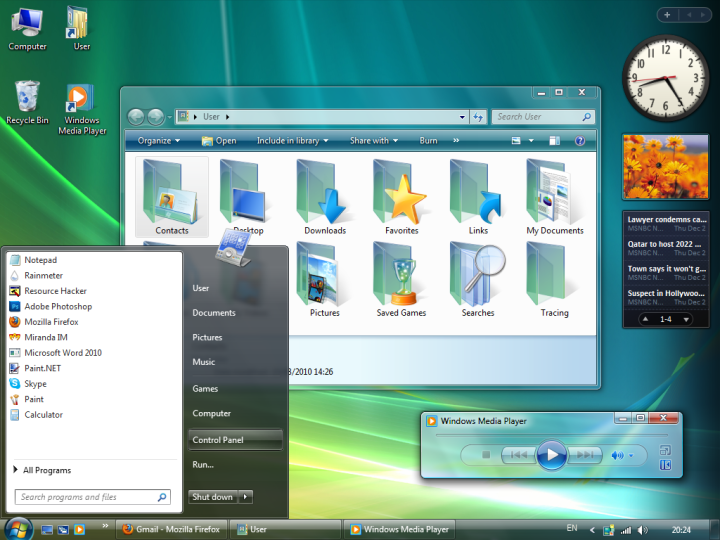
Should you continue to use Windows Vista after April 11, you’ll be much more susceptible to security threats, especially as Internet Explorer 9 is no longer supported either.
“Also, as more software and hardware manufacturers continue to optimize for more recent versions of Windows, you can expect to encounter more apps and devices that do not work with Windows Vista,” said Microsoft in its announcement. Vista’s antivirus suite Microsoft Security Essentials will only have “limited effectiveness,” it added.
The latest figures on operating system market share show that Vista has just 0.78 percent of the pie. And while that may barely be a blip on the screen, if you’re one of those users, you have about a month to get updated and secured.
Vista was released in 2007 as the follow-up to Windows XP. Although it was a long time coming, it failed to meet expectations, and suffered from buggy features. Instead of replacing XP it did the exact opposite and encouraged more users to stick with the predecessor. Windows XP’s market share remained strong for many years.
This led Microsoft to work away at Windows 7 and 8 to try and get people to move away from the now unsupported XP.
Despite this history, Vista has still been receiving critical updates all these years. That’s all about to change.
Windows 10 is of course Microsoft’s pride and joy these days and unsurprisingly, the firm is pushing the last remaining Vista users to update to the flagship OS. Microsoft is gradually ending support for its older operating systems so that Windows 10 eventually becomes all that’s left.


